
Nazare: The Surfer's Paradise and Cultural Haven
Nazare, a small fishing village on Portugal's Silver Coast, is a blend of raw natural beauty and rich cultural heritage. Famous for its colossal waves, it's a mecca for surfers from around the world. The Praia do Norte beach is where you can witness these awe-inspiring waves, some of which have set world records. Even if you're not a surfer, watching the waves from the cliff-top lighthouse at Fort of São Miguel Arcanjo is an unforgettable experience. Beyond its beaches, Nazare offers a glimpse into traditional Portuguese life. Wander through the narrow streets of the old town, where you can see local women wearing the traditional seven skirts. Don't miss the bustling fish market, where you can try fresh seafood caught that morning. The town's main square, Praça Sousa Oliveira, is surrounded by charming cafes and restaurants where you can enjoy local dishes like grilled sardines and 'caldeirada', a hearty fish stew. Nazare is also home to the Sanctuary of Our Lady of Nazare, a significant pilgrimage site. The church, perched on a hilltop, offers stunning views of the coastline and is steeped in history. For a touch of modernity, visit the nearby Sitio, accessible via a funicular railway, where you can explore more shops, cafes, and panoramic viewpoints. Whether you're an adventure seeker or a culture enthusiast, Nazare has something to offer.
Local tips in Nazare
- Visit off-season (spring or autumn) to avoid crowds and still enjoy pleasant weather.
- Wear comfortable shoes for walking on cobblestone streets and exploring hilly areas.
- Check the surf forecast if you want to see the biggest waves at Praia do Norte.
- Try local seafood dishes at the many family-owned restaurants in town.
- Take the funicular railway to Sitio for stunning coastal views and local crafts.
Nazare: The Surfer's Paradise and Cultural Haven
Nazare, a small fishing village on Portugal's Silver Coast, is a blend of raw natural beauty and rich cultural heritage. Famous for its colossal waves, it's a mecca for surfers from around the world. The Praia do Norte beach is where you can witness these awe-inspiring waves, some of which have set world records. Even if you're not a surfer, watching the waves from the cliff-top lighthouse at Fort of São Miguel Arcanjo is an unforgettable experience. Beyond its beaches, Nazare offers a glimpse into traditional Portuguese life. Wander through the narrow streets of the old town, where you can see local women wearing the traditional seven skirts. Don't miss the bustling fish market, where you can try fresh seafood caught that morning. The town's main square, Praça Sousa Oliveira, is surrounded by charming cafes and restaurants where you can enjoy local dishes like grilled sardines and 'caldeirada', a hearty fish stew. Nazare is also home to the Sanctuary of Our Lady of Nazare, a significant pilgrimage site. The church, perched on a hilltop, offers stunning views of the coastline and is steeped in history. For a touch of modernity, visit the nearby Sitio, accessible via a funicular railway, where you can explore more shops, cafes, and panoramic viewpoints. Whether you're an adventure seeker or a culture enthusiast, Nazare has something to offer.
When is the best time to go to Nazare?
Iconic landmarks you can’t miss
Miradouro do Suberco
Experience the stunning views of the Atlantic Ocean at Miradouro do Suberco, an iconic observation deck in Nazaré, Portugal.
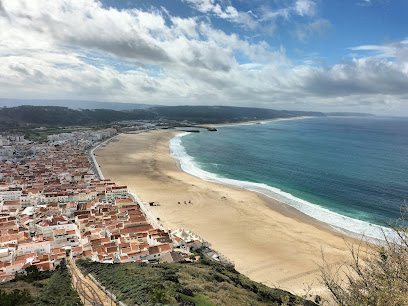
Farol da Nazaré
Explore the stunning Farol da Nazaré, a captivating lighthouse offering breathtaking ocean views and a glimpse into Portugal's maritime history.
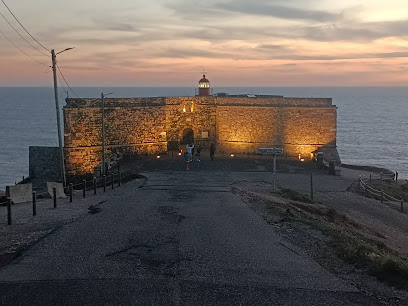
Miradouro da Nazaré
Experience stunning panoramic views of the Atlantic Ocean and the charming coastal town of Nazaré at the Miradouro da Nazaré, a must-visit scenic viewpoint.
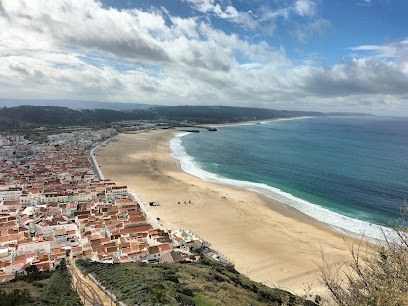
Chapel of the Miracle's Memory
Discover the spiritual and historical essence of Nazaré at the Chapel of the Miracle's Memory, a captivating tourist attraction with stunning architecture.
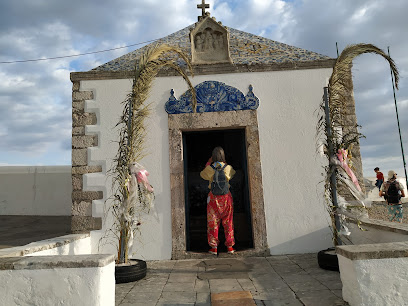
Ondas da Nazaré Viewpoint
Discover breathtaking views and coastal beauty at Ondas da Nazaré Viewpoint, a must-visit scenic destination in Nazaré, Portugal.
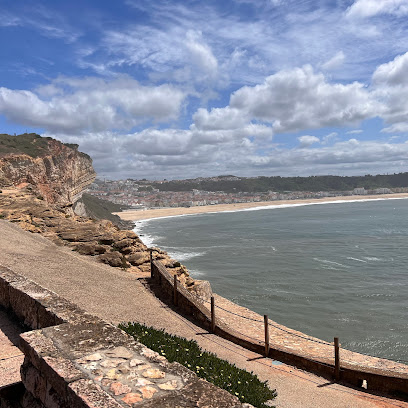
Nazaré Panorâmica
Experience the stunning vistas of Nazaré Panorâmica, where towering waves meet breathtaking landscapes along the Portuguese coast.
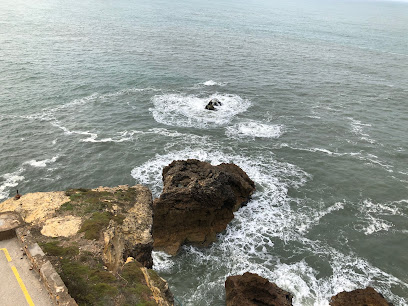
Big Wave Viewpoint
Experience the breathtaking views of the Atlantic Ocean at Big Wave Viewpoint, Nazaré's premier scenic spot for unforgettable coastal vistas.
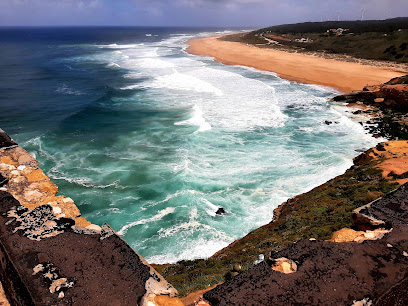
Vista panorâmica sobre a Nazaré
Experience the breathtaking panoramic views of Nazaré, Portugal, where stunning cliffs meet vibrant surf culture and rich local heritage.
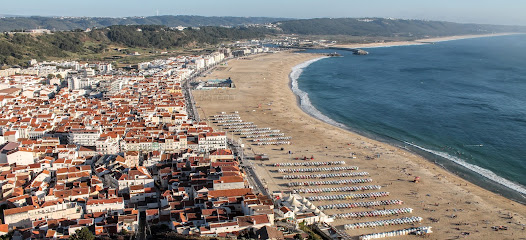
Bola NIVEA – Praia da Nazaré
Explore the breathtaking beauty of Bola NIVEA in Praia da Nazaré, a vibrant tourist attraction offering stunning ocean views and local charm.
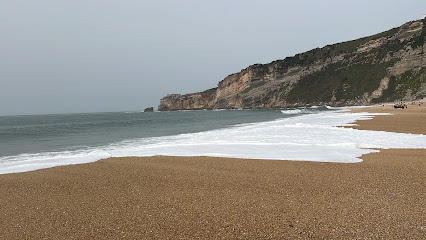
EU AMO A NAZARÉ
Discover the breathtaking vistas of EU AMO A NAZARÉ, a scenic spot that captures the beauty of Nazaré's coastline and offers serene ocean views.
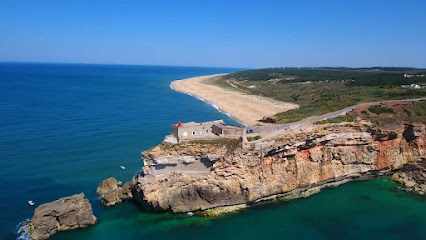
Point de vue
Discover awe-inspiring coastal views at Point de Vue in Nazaré, a captivating destination perfect for nature lovers and photography enthusiasts.
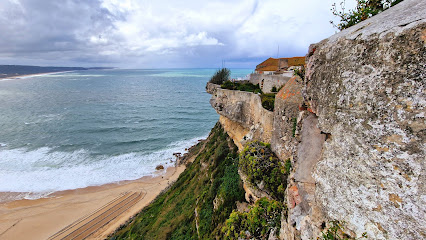
Unmissable attractions to see
Baloiço da Ladeira
Experience breathtaking views and cultural richness at Baloiço da Ladeira in Nazaré, Portugal, a must-visit tourist attraction.
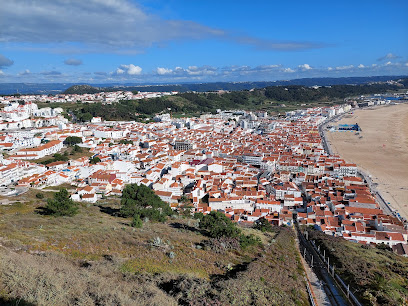
Parque de Merendas 'Pinhal da Casa de Nossa Sra da Nazaré'
Experience tranquility at Parque de Merendas 'Pinhal da Casa de Nossa Sra da Nazaré', a serene park perfect for picnics and relaxation amidst nature's beauty.
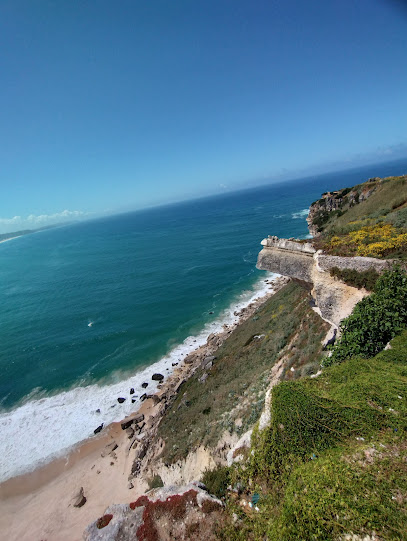
Parque da Pedralva
Experience the beauty and tranquility of Parque da Pedralva in Nazaré, a perfect retreat for nature lovers and families seeking relaxation.
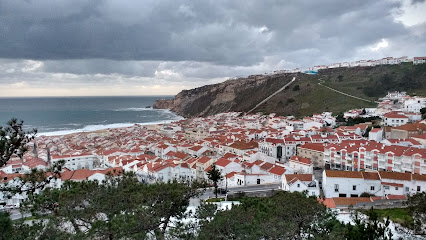
Monte de São Bartolomeu
Experience breathtaking views and serene landscapes at Monte de São Bartolomeu in Nazaré, a must-visit scenic attraction in Portugal.
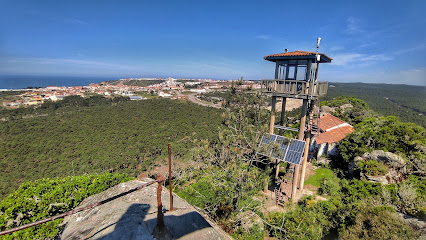
Escultura Veado Surfista
Discover the captivating Escultura Veado Surfista in Nazaré, where art meets surf culture against the stunning Atlantic backdrop.
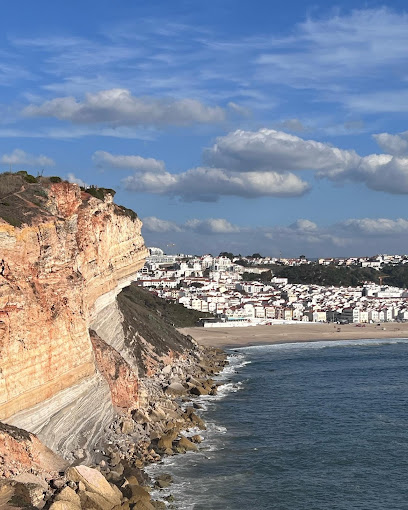
Forno de Orca Cave
Explore the breathtaking Forno de Orca Cave at Praia do Norte, a stunning natural wonder along Portugal's exquisite coastline.
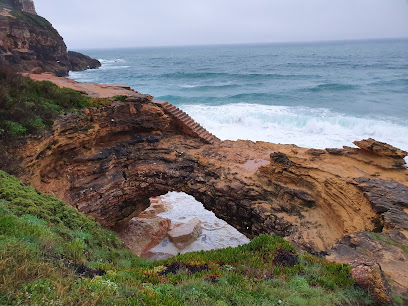
Portal de entrada das ondas gigantes de Nazaré
Experience the breathtaking power of the Atlantic Ocean at Nazaré's Portal de entrada das ondas gigantes, a must-visit for thrill-seekers and nature lovers.
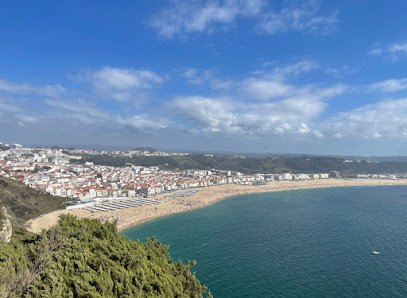
Big Wave Viewpoint
Experience the stunning beauty and breathtaking views of Big Wave Viewpoint in Nazaré, Portugal - a must-visit for nature lovers and adventure seekers.
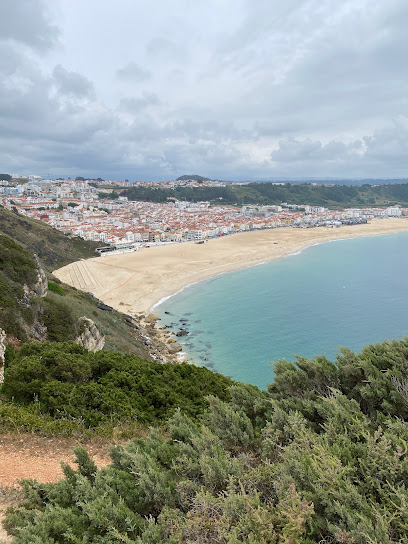
Parque Atlântico
Explore Parque Atlântico in Nazaré, a serene tourist attraction featuring lush landscapes, scenic views, and perfect spots for relaxation and gatherings.
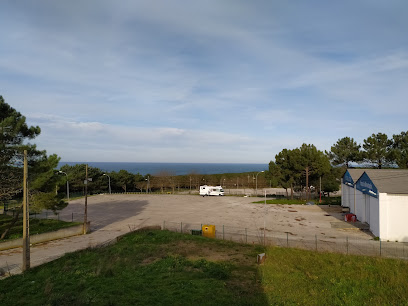
Museu Dr. Joaquim Manso
Explore the rich history of Nazaré at Museu Dr. Joaquim Manso, where the past comes alive through captivating exhibits and local culture.
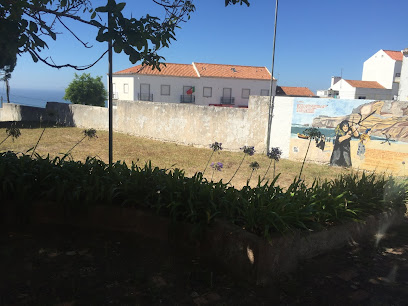
Cat Hangout Spot
Experience the charm of Nazaré at the Cat Hangout Spot, where adorable felines and cozy ambiance create the ultimate cat lover's paradise.
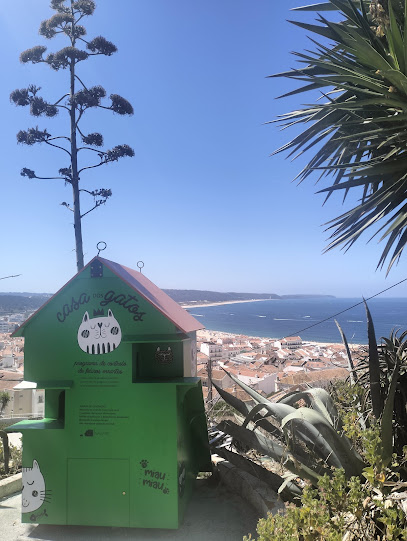
Azinheira Grande
Explore Azinheira Grande, a historical landmark in Fátima, where faith meets history in a serene and spiritual atmosphere.
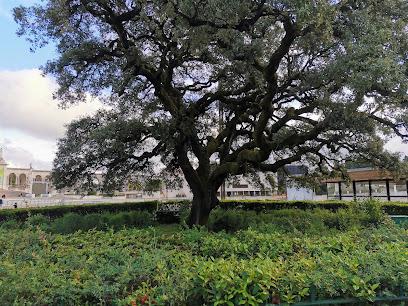
Marca da pata do cavalo.
Explore the breathtaking views at Marca da Pata do Cavalo in Nazaré, where stunning cliffs meet the Atlantic Ocean, creating unforgettable memories.
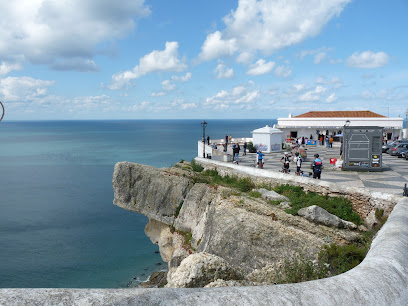
Largo de Nossa Senhora da Nazaré
Explore the serene Largo de Nossa Senhora da Nazaré, a charming city park in Nazaré, Portugal, perfect for relaxation and enjoying the local atmosphere.
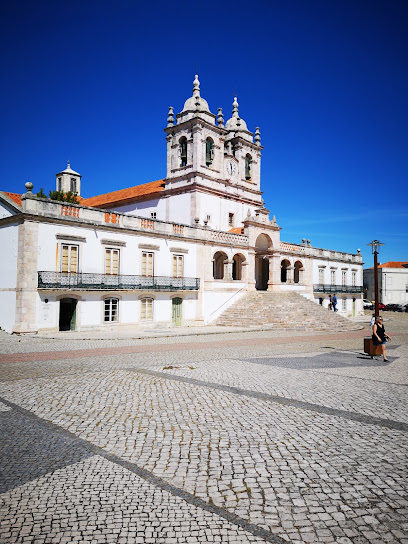
Barcos Salva Vidas
Explore Barcos Salva Vidas in Nazaré, where maritime history and tradition come alive amidst breathtaking coastal views.
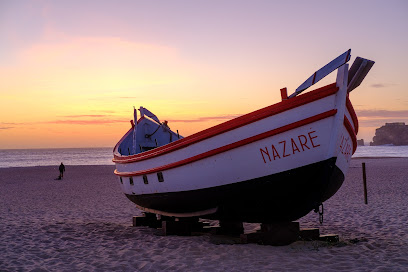
Essential places to dine
Maria do Mar
Discover authentic Portuguese cuisine at Maria do Mar in Nazaré, where fresh seafood meets traditional family dining.
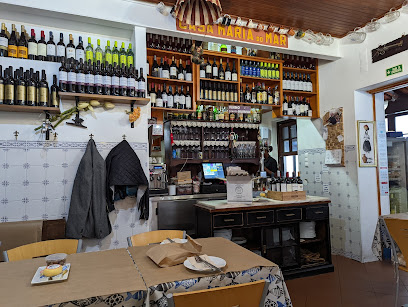
Taberna d'Adelia
Experience authentic Portuguese cuisine at Taberna d'Adelia in Nazaré – where tradition meets flavor in every dish.
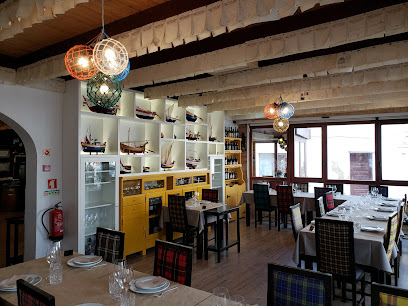
Restaurante A Tasquinha
Discover authentic Portuguese flavors at Restaurante A Tasquinha in Nazaré, where every dish tells a story of tradition and culinary excellence.
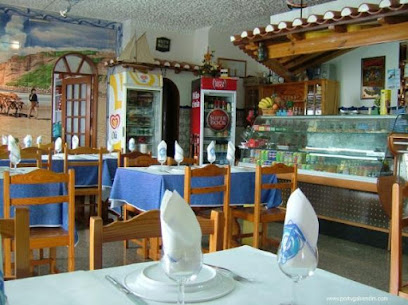
Rosa Dos Ventos
Discover Rosa Dos Ventos in Nazaré - where fresh seafood meets traditional Portuguese hospitality amidst stunning coastal views.
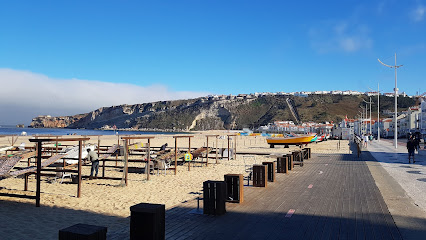
Sitiado - Tapas & Vinhos
Discover Sitiado in Nazaré for an authentic taste of Portugal with exquisite tapas and fine wines in a charming setting.
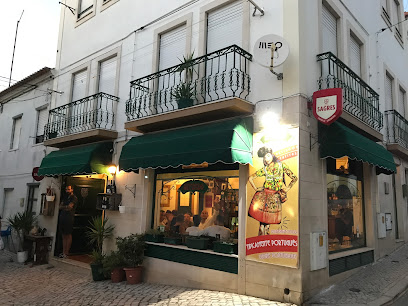
Restaurante Tabernassa
Experience authentic Portuguese cuisine at Restaurante Tabernassa in Nazaré—where every dish tells a story and every bite is a delight.
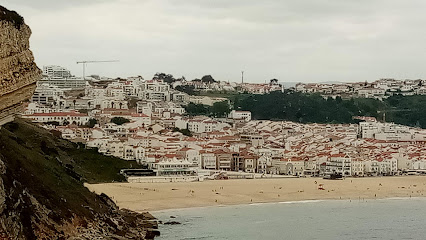
Pangeia
Discover exquisite dining at Pangeia in Nazaré - where local flavors meet exceptional service for an unforgettable culinary experience.
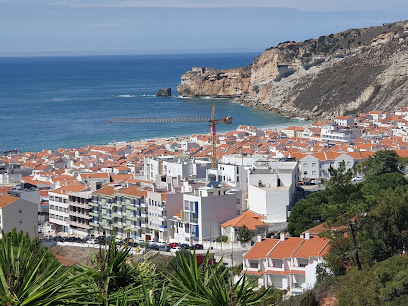
Restaurante A Celeste
Experience authentic Portuguese cuisine at Restaurante A Celeste in Nazaré – where fresh ingredients meet traditional flavors.
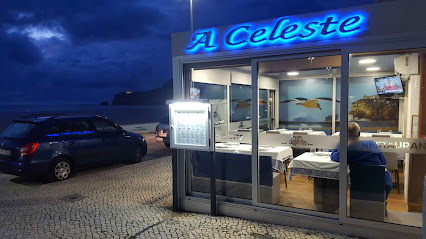
Restaurante Casa Pires - A Sardinha
Experience authentic Portuguese seafood at Restaurante Casa Pires - A Sardinha in Nazaré, where every dish is a celebration of the ocean's bounty.
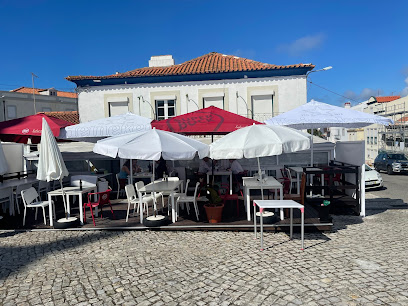
O Veleiro
Experience authentic Portuguese cuisine at O Veleiro in Nazaré, where fresh seafood meets warm hospitality in a charming coastal setting.
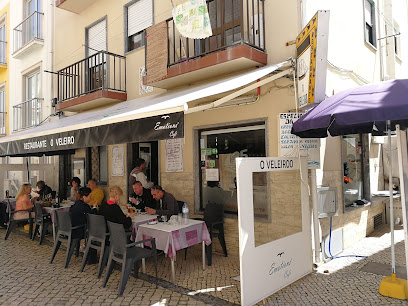
Restaurante O Santo de Anibal
Discover authentic Portuguese cuisine at Restaurante O Santo de Anibal in Nazaré - where fresh seafood meets local charm.
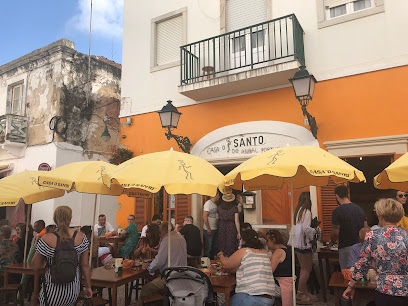
Aleluia Restaurante Esplanada
Experience authentic Portuguese flavors at Aleluia Restaurante Esplanada in Nazaré – where stunning ocean views meet culinary excellence.
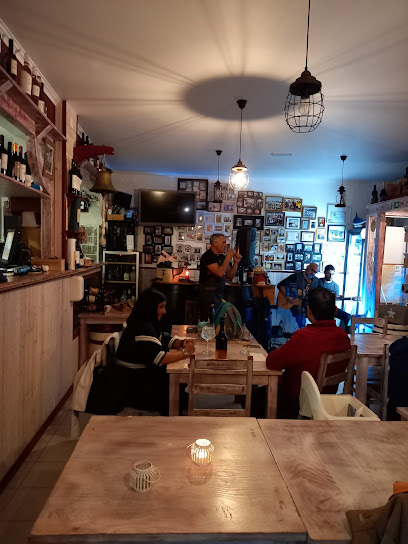
Restaurante Little India
Discover the rich flavors of Indian cuisine at Restaurante Little India in Nazaré – where every meal is a celebration of taste.
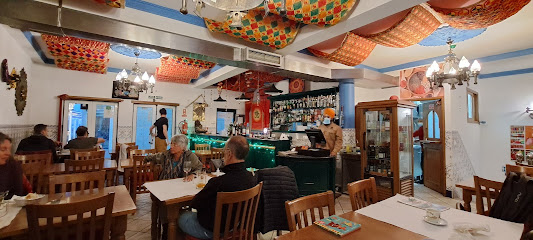
Mar Bravo
Experience exquisite seafood and authentic Portuguese flavors at Mar Bravo in beautiful Nazaré.
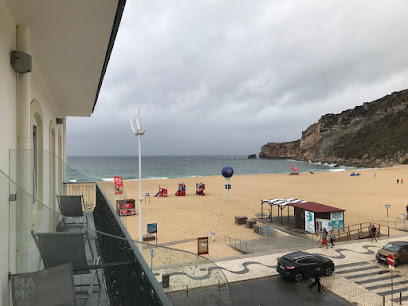
Taberna Afficion
Experience authentic Portuguese cuisine at Taberna Afficion in Nazaré - where tradition meets flavor in every dish.
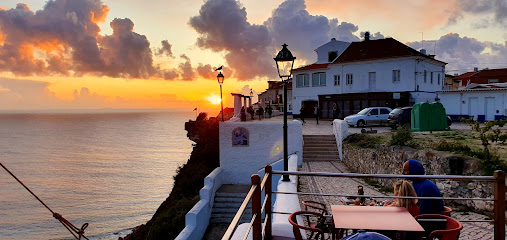
Markets, malls and hidden boutiques
Gelatomania
Indulge in artisanal gelato at Gelatomania, the must-visit ice cream shop in Nazaré, Portugal, perfect for every sweet tooth.
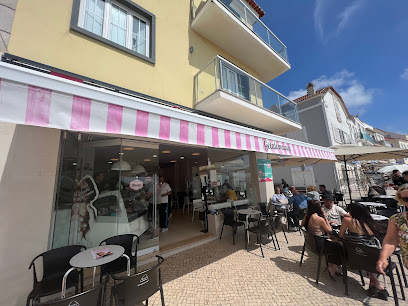
Mercado Municipal da Nazaré
Immerse yourself in local culture at Mercado Municipal da Nazaré, where fresh produce and traditional flavors come together in a vibrant market experience.
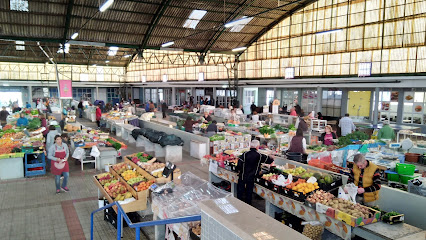
Nata
Experience the best of Portuguese pastry culture at Nata, Nazaré's charming coffee shop known for its delicious pastel de nata and inviting atmosphere.
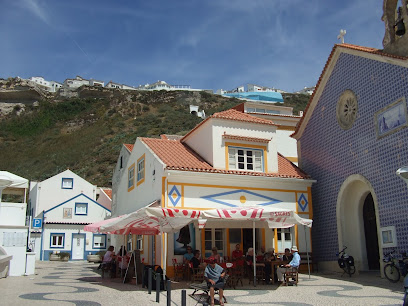
Pérola Da Nazaré
Explore the alluring world of interior design at Pérola Da Nazaré, where local craftsmanship and contemporary style meet in a coastal paradise.
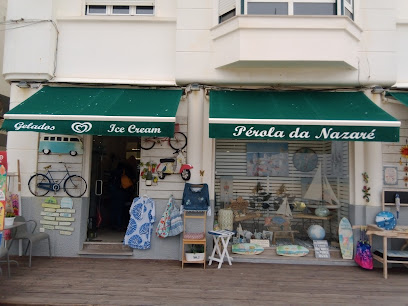
Sport Zone Nazaré
Discover top-quality athletic wear and equipment at Sport Zone Nazaré, the ultimate sportswear store in the heart of Nazaré.
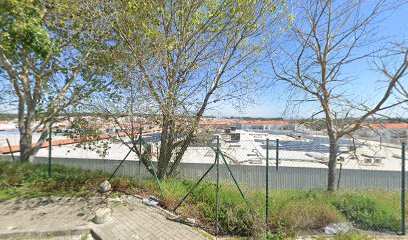
Mike Davis - Nazaré
Discover stylish beach and outdoor clothing at Mike Davis in Nazaré, the perfect blend of fashion and functionality for every adventure.
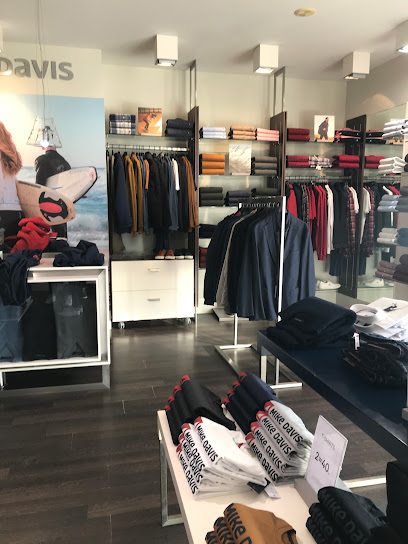
BAHÏA
Explore BAHÏA for stylish beach clothing and accessories in the heart of Nazaré, the ultimate destination for sun lovers and beachgoers.
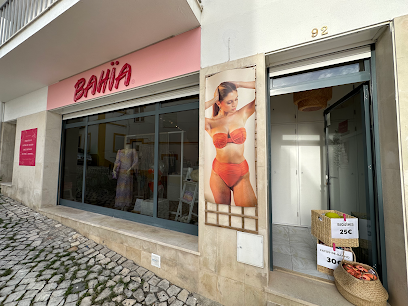
#Loja 2
Explore #Loja 2 in Nazaré for unique souvenirs and local crafts that reflect the rich culture and artistry of Portugal's stunning coastline.
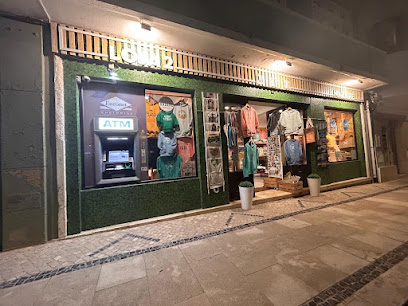
Perfect Waves Nazaré Surf Store
Discover the ultimate surf shopping experience at Perfect Waves Nazaré Surf Store, where passion for the ocean meets quality gear and apparel.
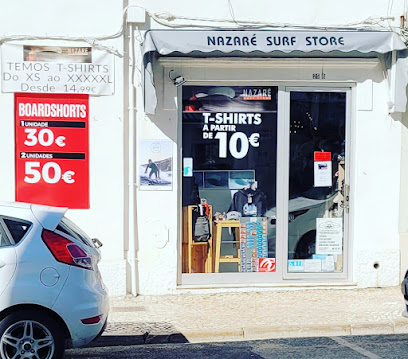
O Coral
Discover unique souvenirs and local crafts at O Coral, Nazaré's favorite gift shop, where every item tells a story of Portugal's rich culture.
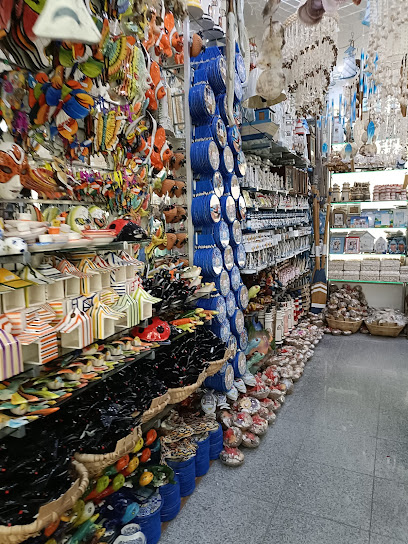
Earth First Nazaré
Explore the essence of Portuguese fashion at Earth First Nazaré, where unique clothing and accessories await every visitor.

Dormodas Nazaré
Explore Dormodas Nazaré for trendy fashion and unique clothing options in the heart of Nazaré, Portugal's charming coastal town.
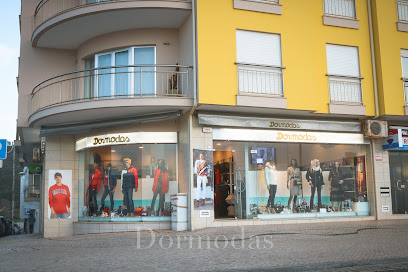
Loja do Sitio - Skateshop/Lifestyle
Explore Loja do Sitio in Nazaré - your ultimate destination for skateboards, BMX gear, and stylish clothing for all ages.
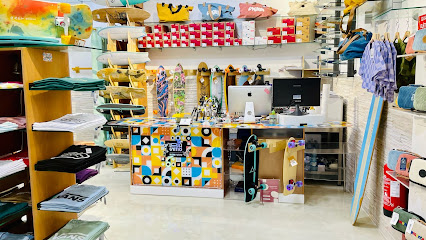
LOJA PRAIA DO NORTE
Explore Loja Praia do Norte, Nazaré's charming clothing store for beachwear and vibrant apparel reflecting the coastal spirit of Portugal.
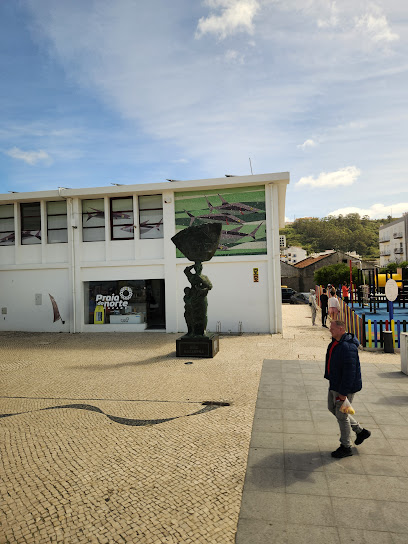
Northern Beach Nazare
Experience the breathtaking beauty and vibrant culture of Northern Beach Nazaré, the ultimate destination for sun, surf, and adventure on the Portuguese coast.
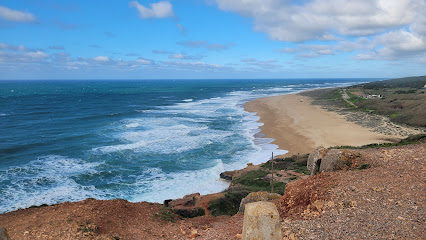
Essential bars & hidden hideouts
Sunset Boulevard Bar.Cafe
Discover a lively atmosphere at Sunset Boulevard Bar.Cafe in Nazaré, where delicious flavors and stunning sunsets await you.
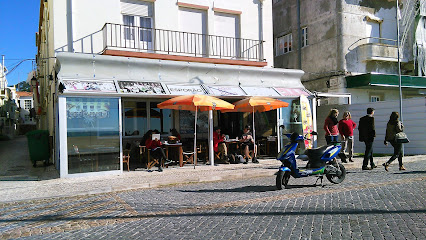
Irish Pub
Discover the charm of Irish culture in Nazaré with authentic cuisine, refreshing drinks, and vibrant live entertainment at this welcoming pub.
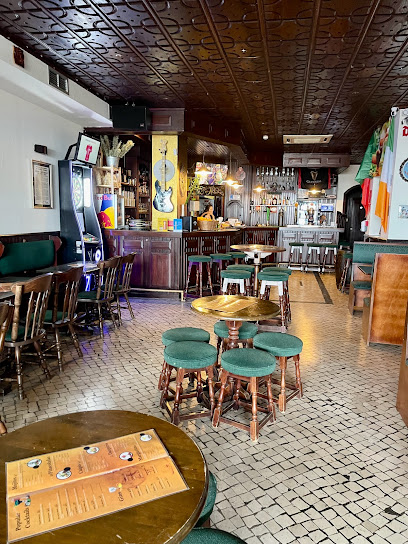
À Deriva
Experience the flavors of Portugal at À Deriva, a charming bar and restaurant in Nazaré, offering fresh local cuisine and a vibrant atmosphere.
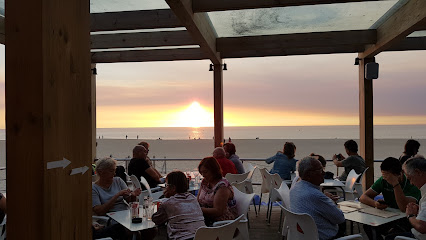
Nbar Café Concerto
Discover the vibrant nightlife at Nbar Café Concerto in Nazaré, where local flavors and lively atmosphere come together for a memorable experience.
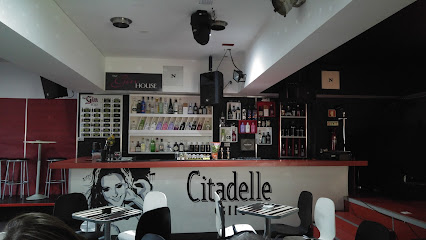
Roland's Bar
Discover the vibrant atmosphere of Roland's Bar in Nazaré, where local flavors and friendly vibes create the perfect evening getaway.
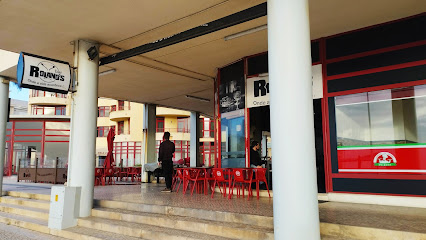
Nitto's
Experience the vibrant atmosphere and local flavors at Nitto's, the perfect bar for tourists in Nazaré, Portugal.
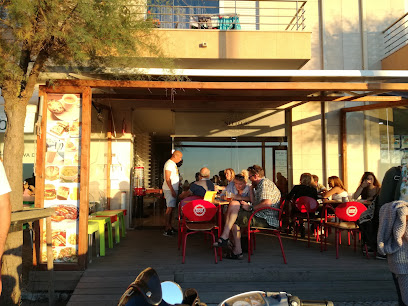
Restaurante Mercearia Na Tábua
Discover the authentic taste of Portugal at Restaurante Mercearia Na Tábua, where tapas and fine wines create an unforgettable dining experience.
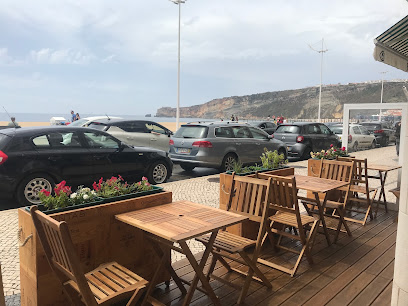
Oceano
Experience the vibrant spirit of Nazaré at Oceano, where local flavors and stunning views create unforgettable moments.
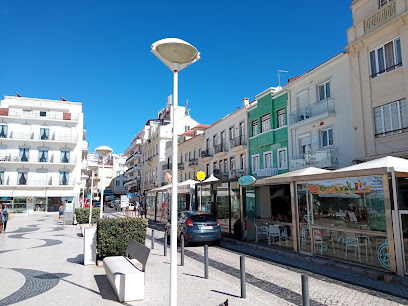
Chafarica
Discover the best of Portuguese cuisine at Chafarica, a vibrant tapas bar in Nazaré offering delicious dishes and a cozy atmosphere.
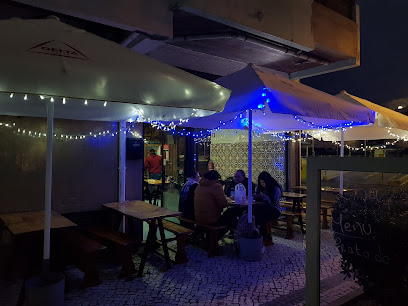
Cantinho do Elevador
Discover the charm of Nazaré at Cantinho do Elevador, a cozy bar perfect for enjoying local drinks and breathtaking views.
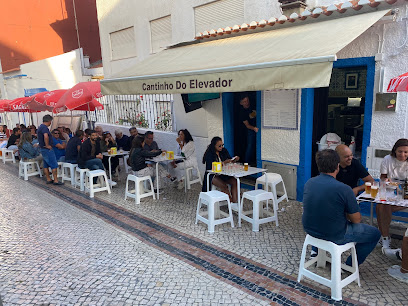
Blá Blá
Discover the vibrant nightlife of Nazaré at Blá Blá, a lively bar with a great drink selection and a welcoming atmosphere.
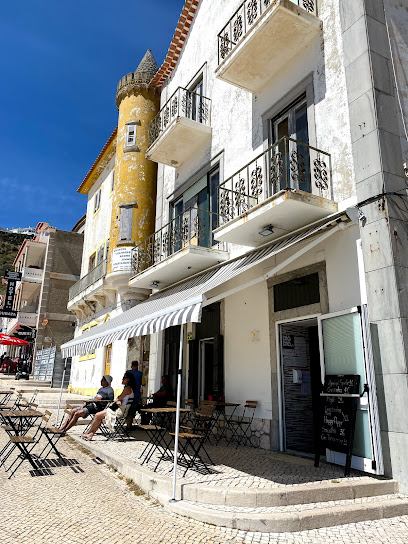
Nalu Beach Club
Experience the vibrant atmosphere and stunning views at Nalu Beach Club, Nazaré's top spot for delicious cuisine and refreshing drinks by the sea.
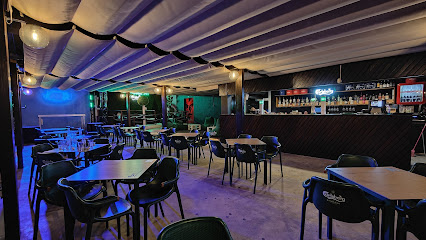
Plaza Pub
Discover the lively atmosphere of Plaza Pub in Nazaré, where refreshing drinks and local culture unite for an unforgettable night out.
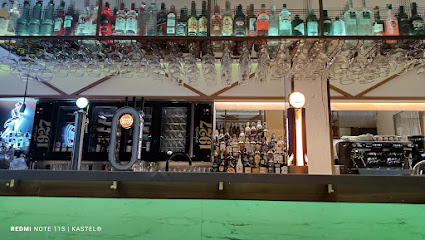
Oxalá
Discover the delightful culinary offerings at Oxalá in Nazaré, where breakfast, tapas, and fine wines create a memorable dining experience.
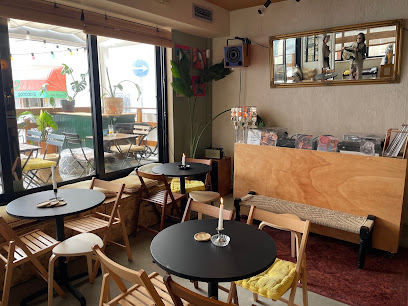
Local Phrases about Nazare
-
- HelloOlá
[oh-lah] - GoodbyeAdeus
[ah-deh-oosh] - YesSim
[seem] - NoNão
[now] - Please/You're welcomePor favor/De nada
[pohr fah-vohr/deh nah-dah] - Thank youObrigado
[oh-bree-gah-doo] - Excuse me/SorryCom licença/Desculpe
[kohm lee-sehn-sah/dehs-kool-peh] - How are you?Como está?
[koh-moh ehs-tah] - Fine. And you?Bem. E você?
[behn/eh voh-seh] - Do you speak English?Fala inglês?
[fah-lah een-glehsh] - I don't understandNão entendo
[now ehn-tehn-doo]
- HelloOlá
-
- I'd like to see the menu, pleaseGostaria de ver o menu, por favor
[goh-stah-ree-ah deh vehr oo meh-noo/por fah-vohr] - I don't eat meatNão como carne
[now koh-moh kahr-neh] - Cheers!Saúde!
[sow-deh] - I would like to pay, pleaseGostaria de pagar, por favor
[goh-stah-ree-ah deh pah-gahr/por fah-vohr]
- I'd like to see the menu, pleaseGostaria de ver o menu, por favor
-
- Help!Ajuda!
[ah-joo-dah] - Go away!Vai embora!
[vah-ee ehm-boh-rah] - Call the Police!Chame a Polícia!
[shah-meh ah poh-lee-see-ah] - Call a doctor!Chame um médico!
[shah-meh oom meh-dee-koo] - I'm lostEstou perdido
[eh-stoh pehr-dee-doo] - I'm illEstou doente
[eh-stoh doo-ehn-teh]
- Help!Ajuda!
-
- I'd like to buy...Gostaria de comprar...
[goh-stah-ree-ah deh kohm-prahr] - I'm just lookingEstou só a ver
[eh-stoh soh ah vehr] - How much is it?Quanto custa?
[kwahn-toh koos-tah] - That's too expensiveIsso é muito caro
[ee-soh eh moo-ee-tooh kah-roo] - Can you lower the price?Pode baixar o preço?
[poh-deh by-shahr oo preh-soh]
- I'd like to buy...Gostaria de comprar...
-
- What time is it?Que horas são?
[keh oh-rahsh sah-oh] - It's one o'clockÉ uma hora
[eh oo-mah oh-rah] - Half past (10)Meia hora (dez)
[may-ah oh-rah/dehsh] - MorningManhã
[mah-nyah] - AfternoonTarde
[tahr-deh] - EveningNoite
[noy-teh] - YesterdayOntem
[ohn-tehm] - TodayHoje
[oh-zhey] - TomorrowAmanhã
[ah-mah-nyah] - 1Um
[oom] - 2Dois
[doh-ees] - 3Três
[trehs] - 4Quatro
[kwah-troh] - 5Cinco
[seeng-koh] - 6Seis
[saysh] - 7Sete
[seh-teh] - 8Oito
[oy-toh] - 9Nove
[noh-veh] - 10Dez
[dehsh]
- What time is it?Que horas são?
-
- Where's a/the...?Onde fica o/um...?
[ohn-deh fee-kah oo/oohm] - What's the address?Qual é o endereço?
[kwahl eh oo ehn-deh-reh-soh] - Can you show me (on the map)?Pode mostrar-me (no mapa)?
[poh-deh moh-shtr meh/noo mah-pah] - When's the next (bus)?Quando é o próximo (autocarro)?
[kwahn-doo eh oo proh-kssee-moh/ow-toh-kah-roo] - A ticket (to ....)Um bilhete (para ...)
[oom bee-lyeh-teh/ pah-rah]
- Where's a/the...?Onde fica o/um...?
History of Nazare
-
The legend of Our Lady of Nazaré dates back to the 12th century. It is said that a wooden statue of the Virgin Mary, believed to have been carved by St. Joseph and brought to Nazaré by a monk named Romano, miraculously saved a Portuguese knight from falling off a cliff while hunting. This event is commemorated at the Sanctuary of Our Lady of Nazaré, a significant pilgrimage site.
-
Built in the 14th century, the Sanctuary of Our Lady of Nazaré became a major pilgrimage destination. The church's interior is adorned with exquisite azulejos (traditional Portuguese tiles) and houses the revered statue of Our Lady of Nazaré. The site has attracted countless pilgrims over the centuries, contributing to the town's cultural and religious significance.
-
The devastating 1755 Lisbon Earthquake had far-reaching effects, including on Nazaré. The town experienced significant damage, but its resilience is showcased in its recovery and rebuilding efforts. The earthquake also led to the construction of new religious and civic buildings, shaping the architectural landscape of Nazaré.
-
Nazaré has a long-standing tradition of fishing, which has been the backbone of its economy for centuries. The local culture is deeply intertwined with the sea, evident in the distinctive seven-skirted costumes worn by women, the colorful fishing boats, and the folklore passed down through generations. The Fishermen's Museum provides a glimpse into this rich maritime heritage.
-
In recent decades, Nazaré has gained international fame as a premier surfing destination. The gigantic waves at Praia do Norte, particularly the record-breaking wave surfed by Garrett McNamara in 2011, have put Nazaré on the global map. This phenomenon has led to a surge in tourism, with surfers and adventure seekers flocking to the town.
-
The Sitio, perched atop a cliff, offers panoramic views of Nazaré and the Atlantic Ocean. Historically, it was a place of refuge and defense against pirate attacks. The funicular, established in the 19th century, connects the lower town to the Sitio, making it accessible to visitors while preserving its historical charm.
-
Nazaré hosts numerous cultural and religious festivals throughout the year. The most notable is the Festival of Our Lady of Nazaré in September, featuring processions, music, and traditional dances. These events celebrate the town's heritage and provide an immersive experience for visitors seeking to understand the local culture.
Nazare Essentials
-
Nazaré is located in the Leiria District of Portugal, approximately 120 kilometers north of Lisbon. The nearest international airport is Humberto Delgado Airport in Lisbon. From Lisbon, you can take a bus or drive to Nazaré. The bus journey takes around 1.5 to 2 hours and is operated by several companies, including Rede Expressos. Alternatively, you can rent a car at the airport and drive to Nazaré, which typically takes about 1.5 hours via the A8 motorway.
-
Nazaré is a compact town, and many attractions are within walking distance. For longer trips, local taxis are readily available and reasonably priced. There are also local buses that connect the different parts of the town and neighboring areas. Renting a car can be a convenient option if you plan to explore the surrounding region. Bicycle rentals are also available for those who prefer a more active mode of transportation.
-
The official currency in Portugal is the Euro (EUR). Credit and debit cards are widely accepted in hotels, restaurants, and shops. However, it is advisable to carry some cash for smaller establishments and markets. ATMs are plentiful in Nazaré, and foreign cards are generally accepted. Ensure you inform your bank of your travel plans to avoid any issues with card transactions.
-
Nazaré is generally a safe destination for tourists. However, like any travel destination, it is important to take standard precautions. Avoid walking alone at night in secluded areas and keep an eye on your belongings in crowded places, such as markets and festivals. While there are no specific high-crime areas targeting tourists, always stay vigilant and aware of your surroundings.
-
In case of emergency, dial 112 for immediate assistance in Portugal. This number connects to police, medical, and fire services. The local police station and medical facilities are available in Nazaré. It is recommended to have travel insurance that covers medical emergencies. For minor health issues, there are several pharmacies in the town where you can purchase over-the-counter medications.
-
Fashion: Do dress modestly, especially when visiting religious sites. Avoid wearing overly revealing clothing. Religion: Do respect local customs and traditions. Always cover your shoulders and knees when entering churches. Public Transport: Do be respectful and give up your seat to elderly passengers. Don't talk loudly or play music on public transport. Greetings: Do greet people with a handshake. A smile and a polite 'Olá' or 'Bom dia' are appreciated. Eating & Drinking: Do try local delicacies, such as fresh seafood and traditional pastries. Don’t rush meals; dining is a social and leisurely activity in Portugal.
-
To experience Nazaré like a local, visit the daily market (Mercado Municipal) where you can buy fresh seafood and produce. Engage with locals, who are often friendly and eager to share stories about the town's history and culture. Don’t miss the opportunity to watch the famous big wave surfers at Praia do Norte during the winter months. For a unique experience, take the funicular to Sítio, a cliff-top area offering breathtaking views of the coastline. Also, try the local specialty 'Caldeirada,' a traditional fish stew.
Nearby Cities to Nazare
-
Things To Do in Tomar
-
Things To Do in Viseu
-
Things To Do in Coimbra
-
Things To Do in Sintra
-
Things To Do in Lisbon
-
Things To Do in Cascais
-
Things To Do in Setúbal
-
Things To Do in Aveiro
-
Things To Do in Évora
-
Things To Do in Porto
-
Things To Do in Lamego
-
Things To Do in Badajoz
-
Things To Do in Guimarães
-
Things To Do in Vila Real
-
Things To Do in Braga










